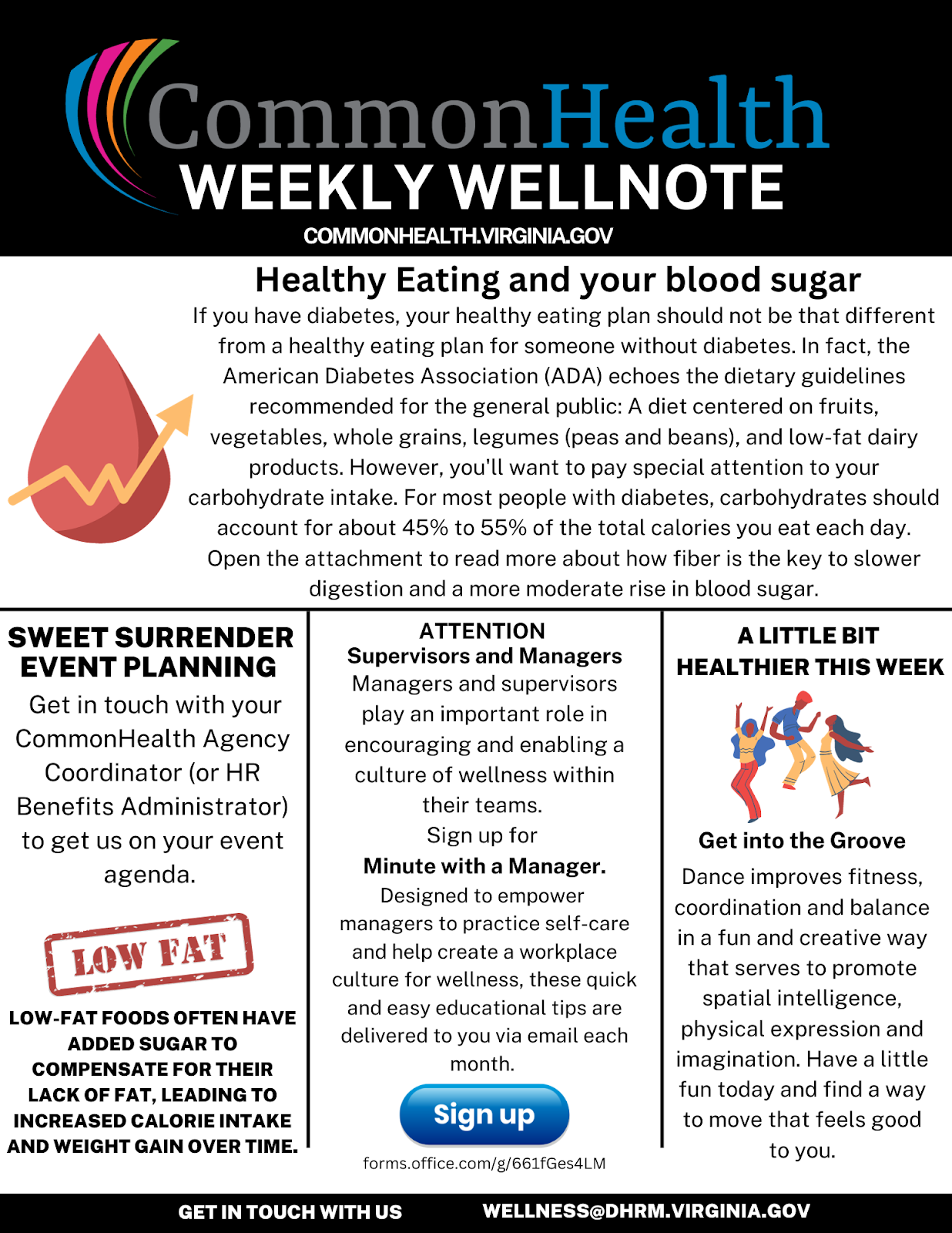CommonHealth Wellnote: Healthy Eating, Your Blood Sugar and More
Individuals with diabetes are encouraged to pay special attention to carbohydrate intake. For most people with diabetes, carbohydrates should account for about 45% to 55% of the total calories you eat daily.
Make sure you choose your carbohydrates wisely — ideally, from vegetables, whole grains, and fruits. Try to avoid highly refined carbohydrates such as white bread, pasta, and rice, as well as candy, sugary soft drinks, and sweets. Refined carbohydrates tend to cause sharp spikes in blood sugar and can boost blood triglyceride levels.
The facts on fiber:
Vegetables, fruits, and whole grains not only provide more nutrition per calorie than refined carbohydrates, they also tend to be rich in fiber. Your body digests high-fiber foods more slowly — which means a more moderate rise in blood sugar.
Fiber comes in two forms: insoluble fiber, the kind found in whole grains, and soluble fiber, found in beans, dried peas, oats, and fruits. Soluble fiber appears to lower blood sugar levels by improving insulin sensitivity, which may mean you need less diabetes medicine.
In addition, a number of studies suggest that eating plenty of fiber reduces the chances of developing heart disease — and people with diabetes need to do all they can to lower their risk.

For questions regarding this week’s communication or the CommonHealth program, please reach out to your respective campus coordinator below:
- Alexandria – Kathy Clement (kclement@nvcc.edu) or Najeeb Baha (nbaha@nvcc.edu)
- Annandale – Matthew “Tank” McCarl (mmccarl@nvcc.edu)
- College Staff – Cecil “C.J.” Jackson (ceciJackson@nvcc.edu)
- Fairfax – Dahlia Henry-Tett (employeewellbeing@nvcc.edu)
- Loudoun – Kimberly T. Wright (ktwright@nvcc.edu)
- Manassas – ThuyTien Ngo-Nguyen (tngoNguyen@nvcc.edu)
- Medical Education Campus (Springfield) – Beverly Tsikata (btsikata@nvcc.edu)
- Woodbridge – Dahlia Henry-Tett (employeewellbeing@nvcc.edu)
Submitted by:
Dahlia Henry- Tett, Chief Wellness Officer (CWO), employeewellbeing@nvcc.edu
